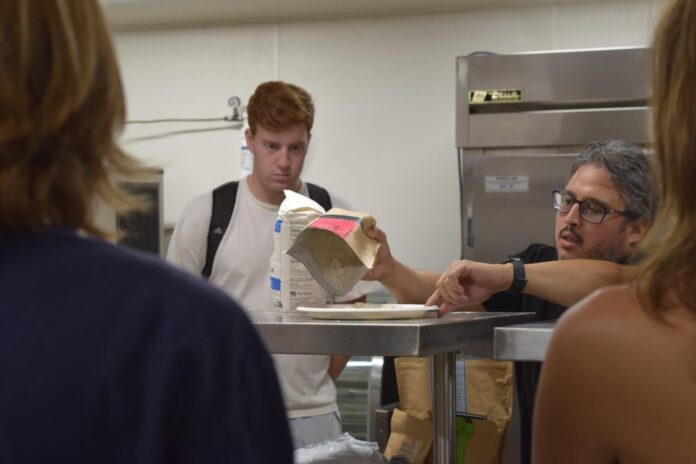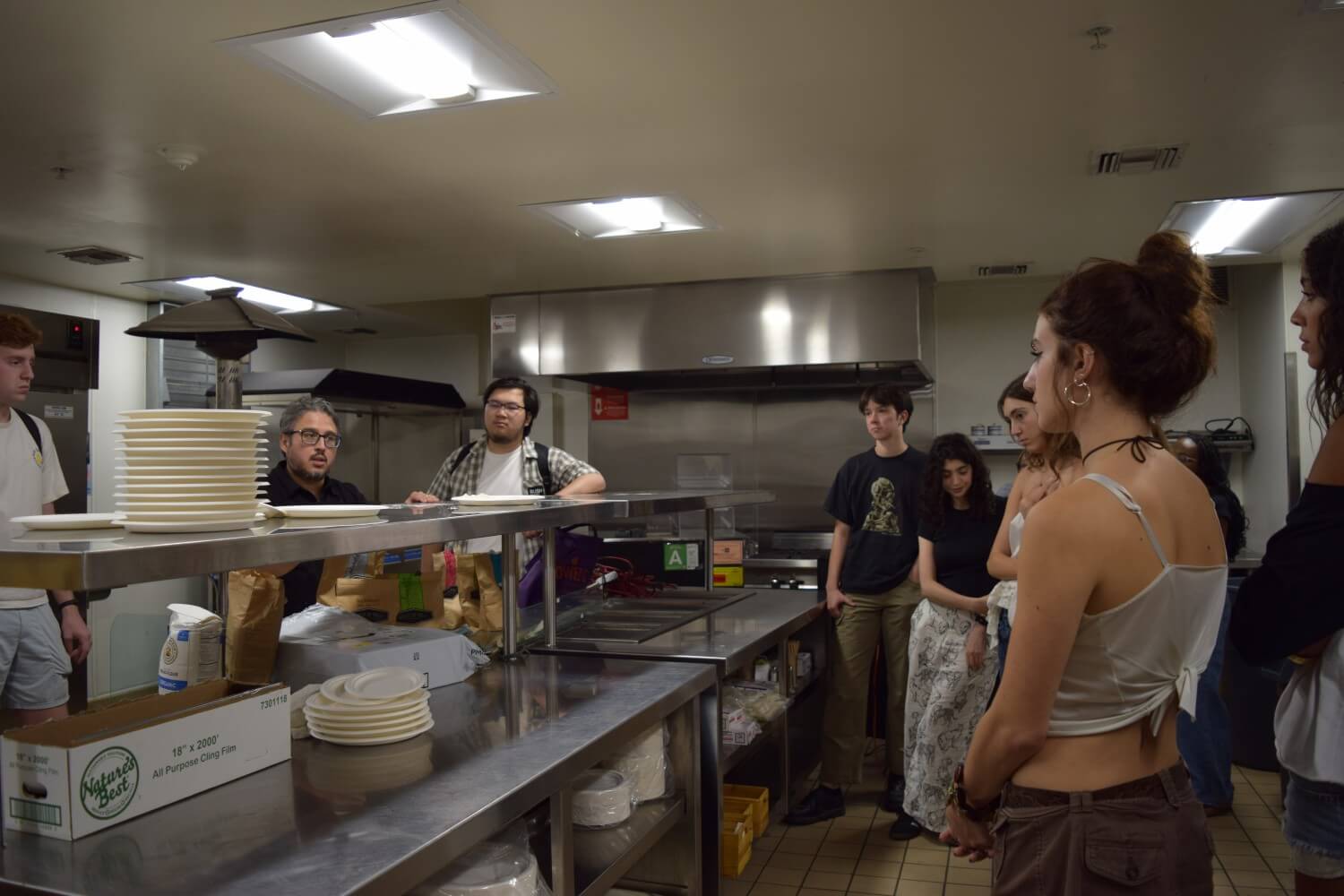
Philosophy professor Robert Sanchez developed his new course “Philosophy Through Baking” to promote the study of philosophy in an experiential manner. Sanchez said he does this through teaching students the cultural significance and ethics of bread and bread-making in different areas of the world.
According to Sanchez, he has a broad background in the history of Western philosophy, as he wrote his dissertation on the influence that Socrates had on Kierkegaard and Wittgenstein. He said his focus is specifically on Mexican philosophy and making it available in English so it can be more accessible to an English-speaking audience.
Sanchez said his interest in cooking and baking developed when he went to culinary school in Richmond, Virginia, where he completed his culinary certificate program.
“What really attracted me to [bread-making] was home millings, like milling your own grain at home and making your own flour at home,” Sanchez said.
According to Sanchez, within his course, he is able to combine his interests in philosophy and baking while providing students with the lifelong skill of learning to bake bread.
“I’ve been wanting to change the pedagogical model of teaching philosophy,” Sanchez said, “I wanted to do the philosophy through practical activities like cooking or baking, where we could explore and question and critique and apply what we were learning with our hands.”
According to Bridget Ferguson (senior), a current student in Sanchez’s class, the course load provides philosophical concepts in a way that is not as abstract, but rather can be used and understood in the practical day-to-day lives of students.
“I think that this class really shows students what philosophy can be,” Ferguson said. “I think specifically with philosophy through food, you get a really interesting side of experiential knowledge, not only by learning the importance of food to us as humans, but also food across cultures.”

Sanchez said he is aiming to potentially grow the class into a business that can be beneficial among grocers and families around LA.
“I would like to donate the loaves to the community and local grocers to give and create a network of people who are in contact with families who need or would benefit from a free loaf of bread,” Sanchez said.
According to Sanchez, he is also hoping to offer these donations to immigrant families in the area who are afraid to leave their homes at this time.
“He’s really committed to investing in the long-term aspect of this course first and foremost, and he’s looking for it to be offered pretty regularly,” Ferguson said.
According to Linus Oppenheimer* (senior), the course’s practical approach to philosophy makes ideas easier to grasp, especially for students who are less familiar with the subject.
“You don’t have to go so heavily into the more theoretical stuff that might make a higher-level philosophy class a bit more confusing,” Oppenheimer said.
Oppenheimer said one of the projects that the students began working on was a sourdough starter, in which they learned how to bake and care for the bread by taking it home and adding water and flour when needed.
“The sourdough starter allowed us to sort of see [philosophical concepts] in action and see how we could apply ideas that we have learned to reach out and interact with the world around us,” Oppenheimer said.
According to Sanchez, the act of studying and baking the bread envelops an array of interests among the students who take the course.
“There’s the history of baking, the history of agriculture — there is all the stuff about environmentalism and local farmers and local sourcing,” Sanchez said. “Bread is a kind of microcosm for all of the things that students are interested in. You can deepen your knowledge of anything you’re interested in through bread.”

Oppenheimer said physically working with the bread has been helpful when learning about philosophical concepts such as Merleau-Ponty‘s philosophy of touch and his explanation of how touch helps people interact with the world. He said being able to apply that to bread-making in class was effective in deepening the students’ understanding of the concept.
“I think that this class really shows students what philosophy can be, that it doesn’t always have to be an abstract, old way of thinking, but it is actually [a] very practical knowledge a lot of the time and can be applied to our everyday life,” Ferguson said.
According to Sanchez, through this class, the students get a different model of philosophy where they can embody the skill and the knowledge is in their hands rather than in their heads.
“It’s not just baking bread to eat or share,” Sanchez said. “You can pursue and deepen your knowledge of anything that you’re interested in through bread.”
*Linus Oppenheimer was a Staff Writer for The Occidental
Contact Amalia Rimmon at rimmon@oxy.edu
![]()






























